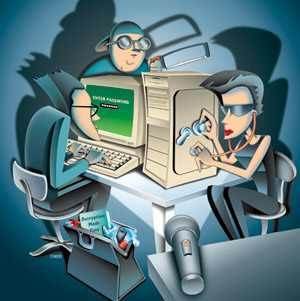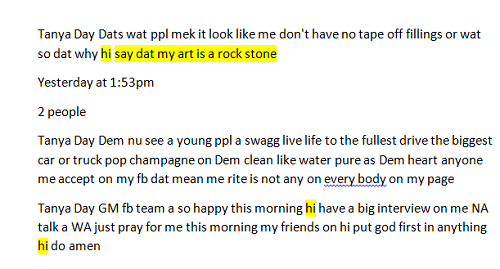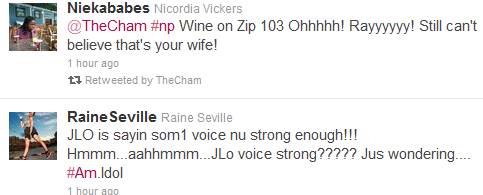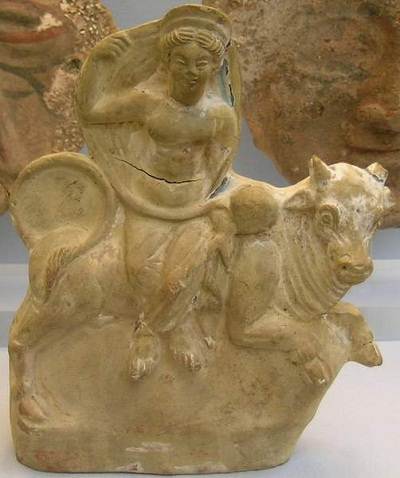BADD!!!
http://youtu.be/Db1JywsqkCw
YES CHINA SNEAKING

By Mark Hosenball
WASHINGTON | Wed Jan 18, 2012 5:50pm EST
(Reuters) – Suspicion is growing that operatives in China, rather than India, were behind the hacking of emails of an official commission that monitors relations between the United States and China, U.S. officials said.
News of the hacking of the U.S.-China Economic and Security Review Commission surfaced earlier this month when an amateur “hacktivist” group purporting to operate in India published what it said was a memo from an Indian Military Intelligence unit to which extracts from commission emails were attached.
But U.S. officials who spoke to Reuters on condition of anonymity said the roundabout way the commission’s emails were obtained strongly suggests the intrusion originated in China, possibly by amateurs, and not from India’s spy service.
A large cache of raw email data from the security breach, reviewed by Reuters, indicates that the principal target of the intruders was not the commission, but instead a Washington-based non-governmental pro-trade group called the National Foreign Trade Council (NFTC).
The trade council is headed by William Reinsch, a former top U.S. Commerce Department official who until recently served as the U.S.-China Commission’s chairman.
A large proportion of the raw email traffic downloaded by the hackers consists of messages to and from Reinsch at his NFTC email address. Many of the emails were spam, but some related to the work of the commission, which was set up by Congress to take a critical look at a wide range of U.S. dealings with China.
Reinsch told Reuters that the NFTC first became aware in November that large quantities of its message traffic had been hacked. He said that law enforcement authorities, including the FBI, had been quickly notified. The FBI has declined comment.
Reinsch said he could think of “no particular reason” why the Indian government or Indian hackers would be interested in him. By contrast, he and several other U.S. officials said that Chinese hackers, whether amateur or directly affiliated with Chinese government, would have great interest in the U.S.-China Commission’s activities, both public and private.
SOFT TARGET
Sources familiar with the hacking and the related investigation said they draw two inferences from the fact that the principal target of the hack appears to have been Reinsch’s email account at NFTC.
First, the sources said they found it difficult to believe anyone connected with India would have taken the time or effort to track down Reinsch or his NFTC account, whereas his chairmanship of the U.S.-China Commission made him a potential major target for Chinese hackers.
Secondly, said the sources, the fact that Reinsch’s NFTC emails were the principal target suggests that whoever hacked them was hunting for a soft target with poor cyber-security.
That fits a pattern of what is known as a blended attack: sophisticated hackers often plan attacks in multiple stages, targeting the systems of government officials and corporate executives by first breaching less-secure systems of people with whom they regularly communicate.
“It’s all about trust relationships and getting inside the trust ecosystems — whether they be digital ecosystems or interpersonal relationships,” said Tom Kellermann, a cyber security expert who has served as a policy advisor to the Obama administration.
“Individuals many times are targeted not just for the network of computers to which they have access, but to the network of individuals to which they have access,” said Kellermann, chief technology officer of a company known as AirPatrol Corp.
Pinning down the origin and perpetrator of a particular cyber-intrusion can be very difficult, if not impossible, as hackers frequently take steps to mask their identity or appear that they are from a third country.
One official familiar with the matter said that it was possible that all the hacked email traffic, including messages related to the U.S.-China Commission, originated with the NFTC.
Under this scenario, the reason commission traffic was included in the hacked material was that it consisted of copies of commission messages which were sent to Reinsch at his NFTC email address.
But other officials said it was also still possible some emails were stolen directly from the commission or private email accounts of other commissioners.
A person familiar with details of the incident and related investigation said the hacked emails spanned a six-month period from late March to late October last year. The source said that about 85 percent of the traffic consisted of emails incoming at the NFTC, with the other 15 percent being outgoing messages from NFTC’s server.
The source said that there were significant gaps in the hacked traffic, covering both day-long and week-long periods, bolstering the notion the hacking was done by amateurs.
Investigators are still trying to determine if the hacker successfully targeted NFTC’s local network or a network which fed messages to a mobile device used by Reinsch.
INDIAN MEMO
The purported Indian intelligence memo implied that the commission emails had somehow been hacked using know-how supplied to the Indian government by mobile phone companies who, as payback, were afforded greater access to the Indian market.
One of the mobile phone manufactures named in the purported memo, Apple, denied giving the Indian government backdoor access to its products. A second, Research in Motion, said the company does not typically comment on rumor or speculation, and a third manufacturer, Nokia, declined to comment.
Indian government officials and agencies declined repeated requests for comment on the alleged government document, although some former Indian officials labeled the memo a fabrication.
Two U.S. officials familiar with the hacking incident said they were puzzled why India would go to the trouble of hacking emails related to the U.S.-China Commission, since its work had little if anything to do with India, and Indian officials and diplomats had never showed much interest in its activities.
By contrast, the commission has been a regular target for what officials describe as persistent attempted hacking intrusions, many through the technique of “phishing,” which involves sending bogus but convincing emails which purport to come from insiders but contain malicious code. Investigators strongly suspect these intrusions were launched by people from, or operating on behalf of, China.
A large proportion of the hacked traffic examined by Reuters appeared to be what could be categorized as spam, including summaries of news articles and political fundraising pitches.
Some hacked traffic from the U.S.-China Commission had potentially sensitive implications, however, including messages in which commission personnel discuss matters under deliberation by the organization. These issues included the commission’s attitude toward alleged Chinese theft of intellectual property and congressional deliberations about alleged Chinese currency manipulation.
U.S. officials said there was no indication hackers managed to gain access to electronic files related to the commission’s most sensitive project – a classified version of its annual public report. Electronic materials related to this project are kept on classified servers, isolated from the Internet, which are operated by agencies other than the commission itself, one official said.
(Additional reporting by Jim Finkle; Editing by Eric Beech and Philip Barbara)
POLITICSTECHMEDIACHINA
http://www.reuters.com/article/2012/01/18/us-usa-china-hacking-idUSTRE80H1ZJ20120118
ANCIENT BABYLON-GOODMORNING
Ancient Babylon – Where is it?
Ancient Babylon was located in Mesopotamia between the Euphrates and Tigris Rivers. Today, the remains of the city are spread out over a cluster of mounds located on the Euphrates about 60 miles southwest of Baghdad, Iraq. The river divided the city in two, with the old city to the east and a smaller new city to the west. The river then fed main canals that watered each half. During the rein of Sennacherib, the city was destroyed by the Assyrians. Once the city was rebuilt, the name was changed to Babylonia. Later, the city became the internment site for the Hebrew captives who were marched into exile by King Nebuchadnezzar II in the sixth century, BCE.
The ground is very fertile and produces wild barley, chickpea, and sesame. The marshlands produce an edible root that is equal in nutrition to barley. The land is also rich with dates, apples, and other fruit as well as fish and birds.
The name Babylon is somewhat of a mystery. The Hebrews of the Bible traced its origins to a word in their own language that means “confusion,” deriving the name from “The Tower of Babel,” which was also located there. In the biblical story, God placed confusion of speech upon the builders so they could no longer communicate and complete their work. In the Semitic language, which the Babylonians spoke, the name of the city may have meant “Gate of God” or “Gate of the Gods.”
Ancient Babylon – Who Did They Worship?
There a number of gods in which the ancient Babylonians worshipped:
An or Anu – the god of Heaven
Enlil – The god of the air and storms. He normally was portrayed in human form, but also appears as a snake to the human eye
Enki – The god of water and the fertile earth
Ki – The mother-goddess representing the earth
Ashur – Main god of Assyria (sky god)
Ninlil or Nillina – The goddess of air (possibly the south wind) and wife of Enlil
Inanna – The goddess of love and war
Ea – The god of Wisdom
Marduk – Originally Ea’s son and god of light. He was the main god of Babylon and the sender of the Babylonian king
Nanna – The god of the moon
Utu or Shamash – The god of the sun, as well as god of justice
Ninurta – a solar deity
Ancient Babylon – What Was Their Culture?
The most famous innovation of ancient Babylonian culture was astronomy, which began as a study of astrology. They created stellar catalogues and a nearly perfect calendar, of which the Jews later copied. They were able to predict eclipses, which they believed announced dangerous and evil times. Eclipses were predicted through two mathematical systems they developed. These systems were the scientific basis of the mathematical and astronomic legacy of ancient Babylonia.
Ancient Babylon still figures in the future of the world. Many of the religious ideas of the Babylonians are still taught in many of today’s religions. Astrology was held in high esteem in Babylonian society, much as it is today. Perhaps the most important legacy that Babylon gave us was its role in the lives of the Jewish people. The Lord used Babylon as a tool to punish His people when they turned from Him. The Bible also tells us that in the future, the Lord will punish Babylon, just as He did in the past.
****RULES**** 1. Debates and rebuttals are allowed but disrespectful curse-outs will prompt immediate BAN 2. Children are never to be discussed in a negative way 3. Personal information eg. workplace, status, home address are never to be posted in comments. 4. All are welcome but please exercise discretion when posting your comments , do not say anything about someone you wouldnt like to be said about you. 5. Do not deliberately LIE on someone here or send in any information based on your own personal vendetta. 6. If your picture was taken from a prio site eg. fimiyaad etc and posted on JMG, you cannot request its removal. 7. If you dont like this forum, please do not whine and wear us out, do yourself the favor of closing the screen- Thanks! . To send in a story send your email to :- [email protected]









Recent Comments